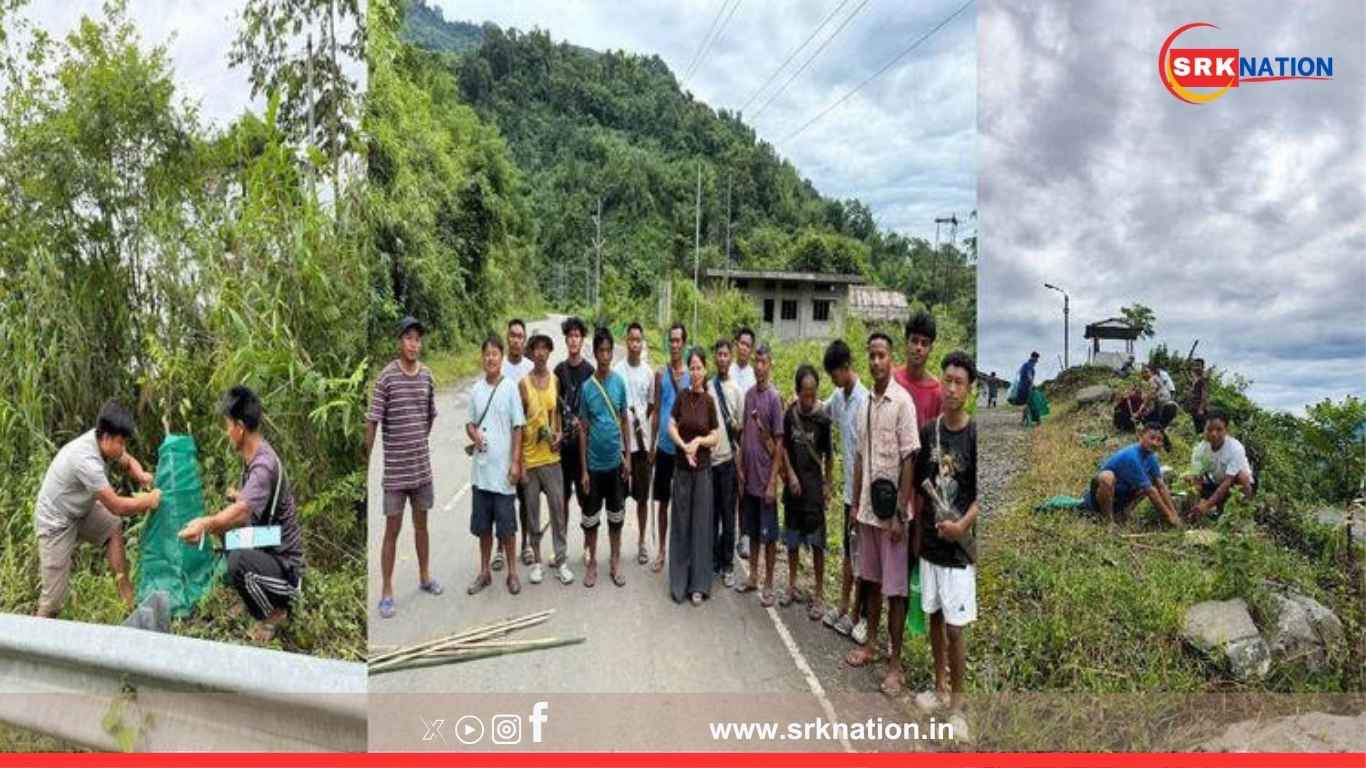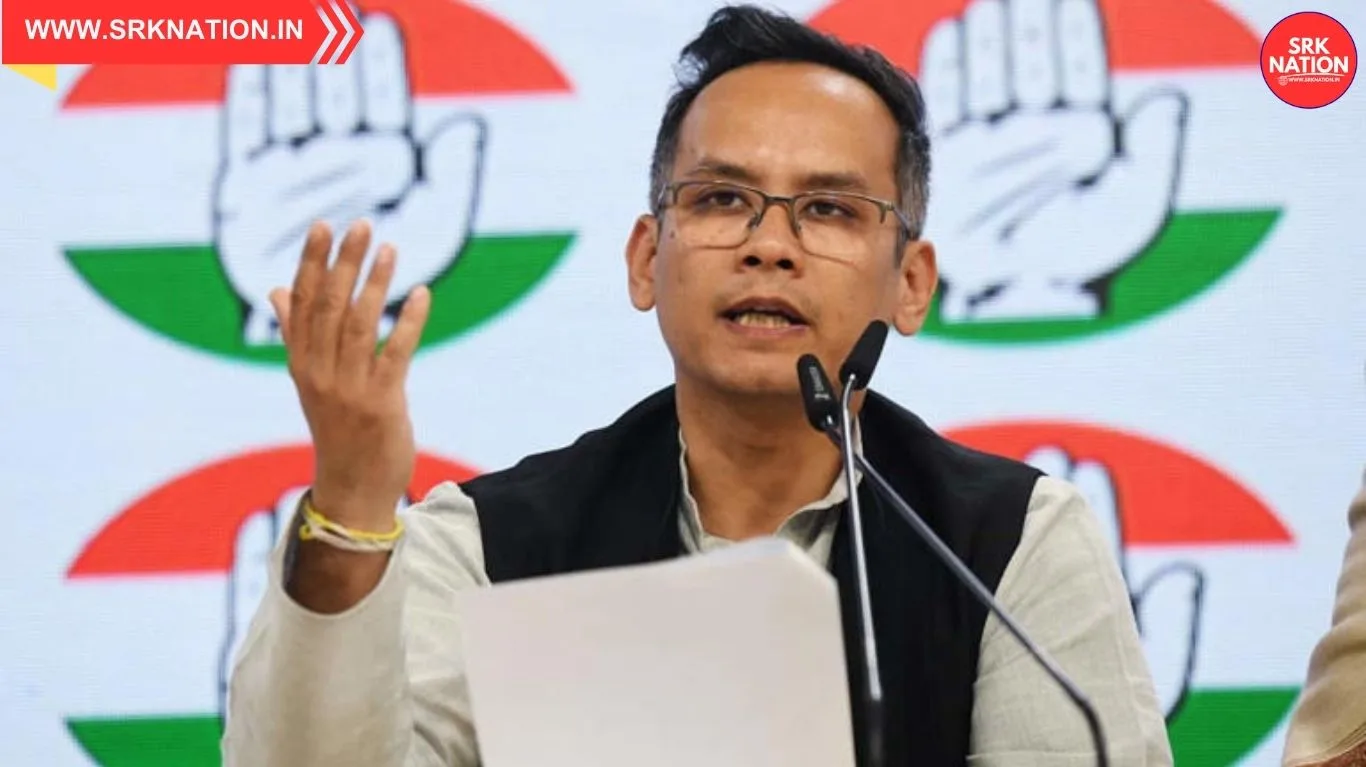In a significant environmental and community mobilisation initiative, Arunachal Pradesh’s Changlang district on Monday carried out a massive tree plantation drive under the national campaign ‘Ek Pedh Maa Ke Naam’, reinforcing India’s commitment to green development, environmental restoration, and mass participation.
About The Campaign
The ‘Ek Pedh Maa Ke Naam’ (A Tree In Mother’s Name) campaign is a flagship environmental mission launched by the Government of India to encourage citizens to plant trees as a tribute to their mothers and to strengthen social bonds with nature. Under the campaign, millions of saplings are being planted across the country, with active participation from schools, panchayats, women’s self-help groups, local NGOs, and government departments.
The Changlang Plantation Drive
The Changlang district administration partnered with the state forest department, local community-based organisations, and educational institutions to carry out this extensive green initiative. Officials reported that over 1.2 lakh saplings were planted on Monday across villages, urban pockets, and roadside stretches in the district.
| Key Highlights Of The Changlang Plantation Drive |
|---|
| Total saplings planted |
| Major species |
| Key participants |
| Locations covered |
| Organising departments |
Leadership Speaks
Deputy Commissioner of Changlang, Dr. Devansh Yadav, who led the plantation events in multiple locations, said:
“This campaign goes beyond environmental goals. It integrates emotional connect by encouraging citizens to dedicate saplings to their mothers, ensuring long-term care and protection. Changlang has enthusiastically embraced this vision.”
He further urged local schools to include tree care in their community service curricula, adding that plantation should not be a single-day symbolic event but a sustained responsibility.
Women-Led Plantation Initiatives
An inspiring aspect of the Changlang drive was the proactive involvement of women’s self-help groups (SHGs). Hundreds of SHG members from Bordumsa and Jairampur planted medicinal and fruit-bearing trees along village roads, community halls, and anganwadi centres.
“We planted mango, guava, gooseberry and neem trees in our village. These trees will serve both economic and health purposes for our families,” said Mungre Tikhak, an SHG leader from Bordumsa.
School Students Lead The Green Movement
At government higher secondary schools across Changlang, students and NCC cadets actively participated. They pledged to nurture their saplings as part of their environmental education projects. Teachers highlighted that this campaign has instilled a sense of purpose, compassion, and ecological consciousness among children.
| Benefits As Stated By Teachers |
|---|
| Practical environmental education |
| Building empathy towards nature |
| Enhancing social responsibility |
| Promoting healthier surroundings |
| Creating future green leaders |
Forest Department’s Role
The state forest department provided technical support, saplings, and guidance on species selection for varied landscapes in the district. Officials strategically planted indigenous varieties along vulnerable forest boundaries to improve green cover and soil health.
Divisional Forest Officer, Tamo Doye, said:
“We prioritised species that are indigenous, require low maintenance, and support biodiversity. Fruit-bearing trees were given to villages to enhance nutritional security and local economy.”
Community Sentiments
Residents shared that dedicating saplings to their mothers created an emotional bond, increasing their motivation to care for trees as family members. Local farmer Khimhun Mossang said:
“I planted a jackfruit tree for my late mother today. This will remind me of her daily and benefit my children in the future.”
National Impact Of ‘Ek Pedh Maa Ke Naam’
The campaign is part of the Centre’s larger target to plant over 100 crore saplings in FY26, announced by the Ministry of Environment. It aligns with India’s commitments under the Paris Agreement and its Nationally Determined Contributions (NDC) to increase forest cover and combat climate change.
| National Targets Under Campaign |
|---|
| Total saplings (FY26) |
| Focus areas |
| Implementing bodies |
| Expected benefits |
Environmentalists’ Take
Environmental experts lauded the Changlang drive, stating that such integrated campaigns create community ownership of environmental goals.
Dr. Pragya Doley, an environmental scientist from Itanagar, noted:
“When plantation becomes an emotional commitment rather than an administrative task, survival rates of saplings increase significantly. Campaigns like ‘Ek Pedh Maa Ke Naam’ bridge the gap between policy and people.”
Next Steps For Changlang
Officials announced upcoming plantation drives targeting riverbanks of the Noa Dihing, school campuses in Miao, and degraded forest stretches in Jairampur. Additionally, awareness sessions on bamboo plantation, agroforestry integration, and medicinal plants cultivation are being planned.
Why Changlang’s Effort Matters
Changlang, located in the southeastern tip of Arunachal Pradesh bordering Myanmar, has rich forests but also faces threats from shifting cultivation and unplanned timber extraction in parts. The administration’s focus on integrated community-based plantation aims to:
- Enhance tree cover
- Reduce erosion and landslides
- Support village economies with fruit, bamboo, and medicinal resources
- Strengthen eco-tourism potential
Nationwide Examples
States like Uttar Pradesh, Maharashtra, and Madhya Pradesh are also organising mega plantation drives under this campaign, reflecting how tree plantation has evolved from symbolic activity to strategic community empowerment and climate resilience action.
Disclaimer
This article is for informational purposes, summarising the plantation drive under the ‘Ek Pedh Maa Ke Naam’ campaign in Changlang district, Arunachal Pradesh. It does not intend to represent official government policy beyond publicly announced programmes.
Such large-scale community-led drives exemplify India’s grassroots approach to tackling climate change, celebrating cultural values, and integrating environmental responsibility into daily lives.











